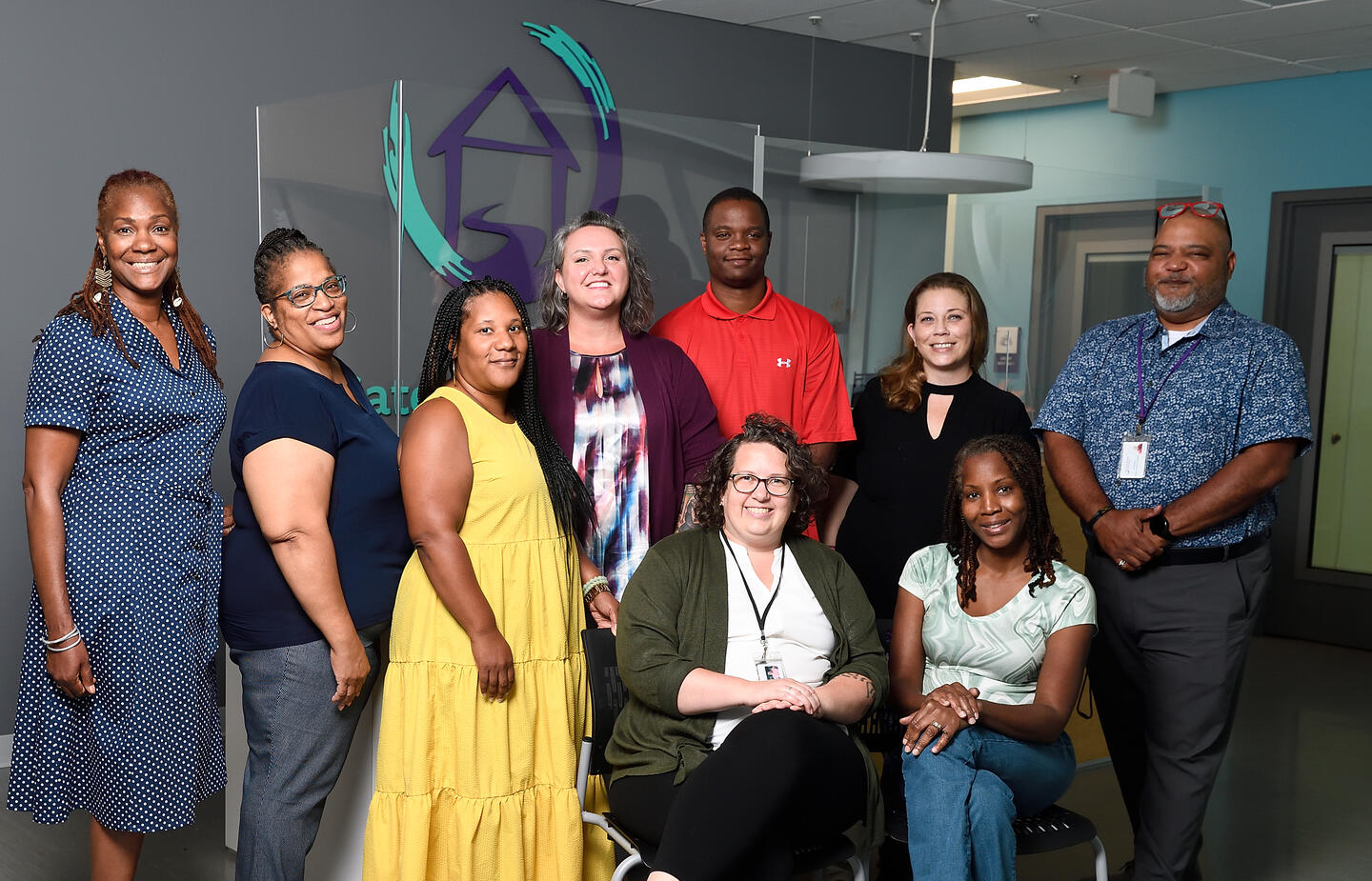- Name
- Doug Donovan
- dougdonovan@jhu.edu
- Office phone
- 443-997-9909
- Cell phone
- 443-462-2947
Johns Hopkins and Baltimore's largest educational and medical nonprofits have agreed to double the voluntary annual contributions the institutions provide to support city government services—on top of the massive economic cascade their operations generate for their hometown.
Under the "nonprofit assessment agreement" forged with Mayor Brandon Scott, the city's 14 largest nonprofits will contribute $48 million over five years starting July 1. The contribution will eventually double the annual amount colleges and hospitals currently provide to the city even as the institutions grapple with unprecedented cuts in federal funding.
"Johns Hopkins is proud of our longstanding partnership with Baltimore. The health and well-being of Johns Hopkins is inextricably tied to the physical, social, and economic well-being of the city that has been our hometown for nearly 150 years," Johns Hopkins University President Ron Daniels said. "Johns Hopkins is deeply committed to our role as Baltimore's largest anchor institution, directly employing nearly 42,000 in the city and generating billions in annual economic impact—whether that's supporting public schools and their students, working with local businesses, or supporting community organizations that are helping to make neighborhoods safer."
For the past decade, the group of nonprofit colleges, universities, and hospital systems have voluntarily contributed $6 million each year to Baltimore, a 10-year agreement that is scheduled to expire on June 30. The new agreement—also known as a "payment in lieu of taxes," or PILOT, because nonprofits are exempt from most property levies—remains steady at $6 million in the first year before jumping to $8 million in the second year and $10 million in the third year of the agreement. In each of the last two years, the nonprofit institutions will pay $12 million.
Johns Hopkins University and the Johns Hopkins Health Systems, the city's largest anchor institutions, will continue to pay slightly more than half of the total contribution, increasing their combined annual share from $3.2 million in 2025 to more than $6.5 million in 2030.
The laws in Maryland and across the United States have long exempted nonprofit institutions from most property taxes because of the significant public benefits that hospitals, universities, churches, and other public charities provide—saving municipalities significant costs by delivering services that local governments would otherwise have to deliver.

Image caption: A Henderson-Hopkins student tries on eyeglasses provided by Vision for Baltimore, operated and funded in partnership with the Johns Hopkins schools of Education and Medicine, Baltimore City Public Schools, the Baltimore City Health Department, eyewear retailer Warby Parker, and national nonprofit Vision To Learn
Image credit: Will Kirk / Johns Hopkins University
In addition to its voluntary contributions, the Johns Hopkins University and Johns Hopkins Health System pay over $14 million annually to provide their own street and curb cleaning, trash removal, lighting maintenance, snow removal, public safety services, and waste management—allowing City Hall to deploy resources where they are most needed across Baltimore's neighborhoods.
Annual community spending by Johns Hopkins, last estimated at $409 million in fiscal year 2024, supports crucial economic development and job growth for neighborhoods across Baltimore. Johns Hopkins also:
- Provides vision screening and new eyeglasses to students across the city
- Delivers school counseling and tutoring to children
- Awards grants to smaller nonprofits that help to keep crime down at historically low levels.
- Supports the nearly 17,000 employees who live in Baltimore with child care benefits and subsidized college tuition for their children, at any school of their choice.
- Makes the university affordable to city students by providing free tuition and room and board if their families earn $80,000 or less (or close to free if they earn up to $150,000)
"Johns Hopkins is deeply committed to seeing Baltimore and its residents thrive," Daniels said. "Supporting opportunity for old and new residents, growing Baltimore's tax base and driving economic activity in our city are the most important roles we can continue to play in our hometown in partnership with Baltimoreans, organizations, and city leaders."
Johns Hopkins and other nonprofit institutions are increasing their voluntary contribution even as they face significant cuts in federal funding to research and Medicaid.
The total value of the Johns Hopkins federal research grant portfolio has declined by more than $500 million this year compared to the same period last year, in addition to reductions of nearly $800 million announced earlier this year due to USAID cuts.
"For the last several months we have been managing a series of challenges to the longstanding partnership between America's research universities and the federal government," Daniels wrote in a Sept. 22 letter to the university community with Provost Ray Jayawardhana. "As we shared in June, these challenges have placed considerable strain on many of our divisions and the university as a whole."

Image caption: Staff from House of Ruth Maryland's Gateway Project, which receives support from Johns Hopkins University's Innovation Fund for Community Safety
Image credit: Will Kirk / Johns Hopkins University
In addition, federal reductions in Medicaid are expected to impose dire impacts on health systems across Maryland. Maryland Department of Health officials project that 175,000 state residents are likely to lose coverage and the state could lose up to $2.7 billion in annual federal funding.
The ramifications of such cuts could be significant for Baltimore.
A new study by The Brookings Institution found that cuts to the National Institutes of Health will result in "meaningful employment losses" for local economies with large amounts of NIH funding. Johns Hopkins has long received more NIH funding than any other institution in the nation.
"The innovations that result from this research generate investments that spur economic activity across the country. The economic impact may also be felt at the local level," the report states. "Cutting [NIH] funding may be detrimental to the community."
"At the heart of health care is people, and our goal is to partner across communities to mindfully create and implement strategies to reinvest in people and infrastructures," said Kevin Sowers, president of the Johns Hopkins Health System and executive vice president of Johns Hopkins Medicine. "In this way we support thriving, healthy communities, compounding the value that exists at the intersection of patient care, research, and education over generations."
As a major driver of the economic life of the city, the 14 largest nonprofits invested approximately $652 million in Baltimore in 2024, according to an analysis of the institutions' tax and spending records. That includes charity care as well as investments in public schools, economic development, arts and culture, taxes and fees, and community health services to help improve the well-being of Baltimore residents.
In addition to the $6 million in voluntary contributions last year, those "eds and meds" nonprofits spent $29 million in taxes and fees on top of paying for services the city would otherwise have to provide, including $19 million they spent for community safety, $7 million for waste management, and $2 million for public right-of-way maintenance.
In Baltimore, these institutions employ approximately 71,000 people, or one out of four private sector positions, generating approximately $57.6 million in local income taxes alone, according to data from 2023.
Over five years, if those economic conditions remain consistent, the nonprofit institutions will contribute a total of $481 million to the city's general fund from the annual voluntary contribution, taxes and fees, and local income taxes.
Institutions in other cities that pay similar voluntary agreements do not pay as many other taxes and fees as do institutions in Baltimore. Several universities in other states that pay similar nonprofit assessment contributions, for example, are not required to withhold income taxes for the benefit of their respective cities and do not have to pay parking, energy, and utilities taxes and other miscellaneous fees, research shows.
According to the Anchor Economy Initiative at the Philadelphia Federal Reserve, hospitals and higher education institutions are vital engines for regional economies, contributing "$1.7 trillion in goods and services to the U.S. economy annually and directly or indirectly support[ing] 18 million jobs—9 percent of U.S. employment."
"When anchor institutions thrive, they contribute to healthy regional economies," according to a report from the Anchor Economy Initiative. "When they close or merge, the effects are wide-ranging. Better understanding the role of anchor institutions in regional economies can help community leaders and planners make informed choices as regions and anchor institutions evolve."
Said Theodore DeWeese, dean of the medical faculty and CEO of Johns Hopkins Medicine: "For Johns Hopkins, Baltimore City is both our home and a valued partner in advancing our mission and vision. We will continue to invest in this community in ways that will create opportunities and drive meaningful, long-term impact."
Posted in University News, Community







